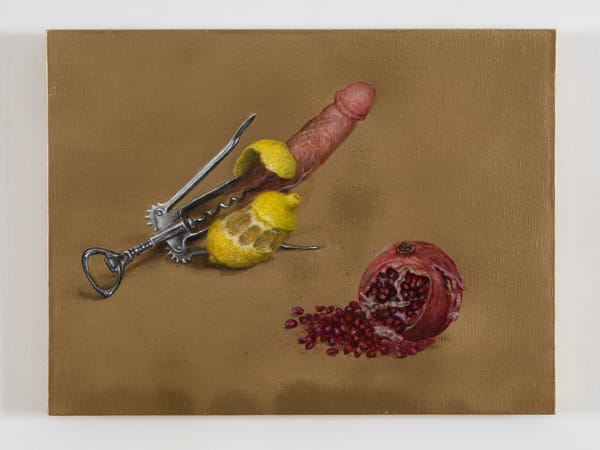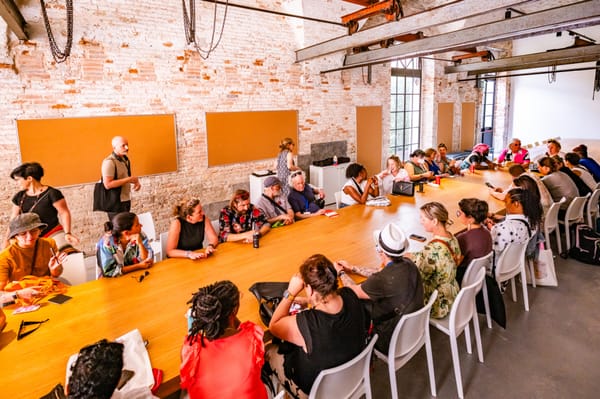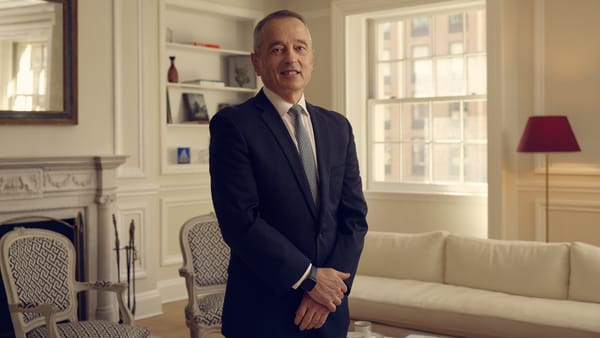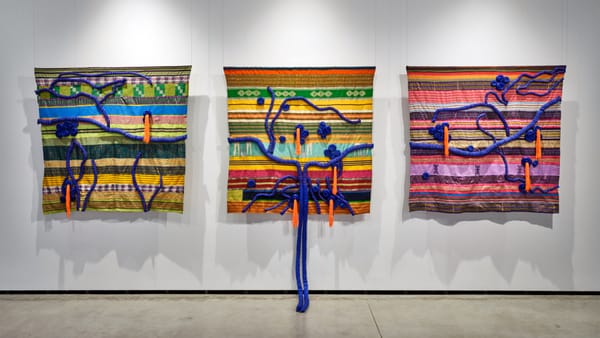Rewriting the Story of Shame and Isolation: The Lambda Literary Awards Turn 25
On Monday night the Lambda Literary Awards turned 25. For those unfamiliar, the Lammys are awards given out to LGBT authors in a variety of categories ranging from serious nonfiction to science fiction. They were started in 1989 by Deacon Maccubbin, founder of the now-shuttered Washington, DC, gay b
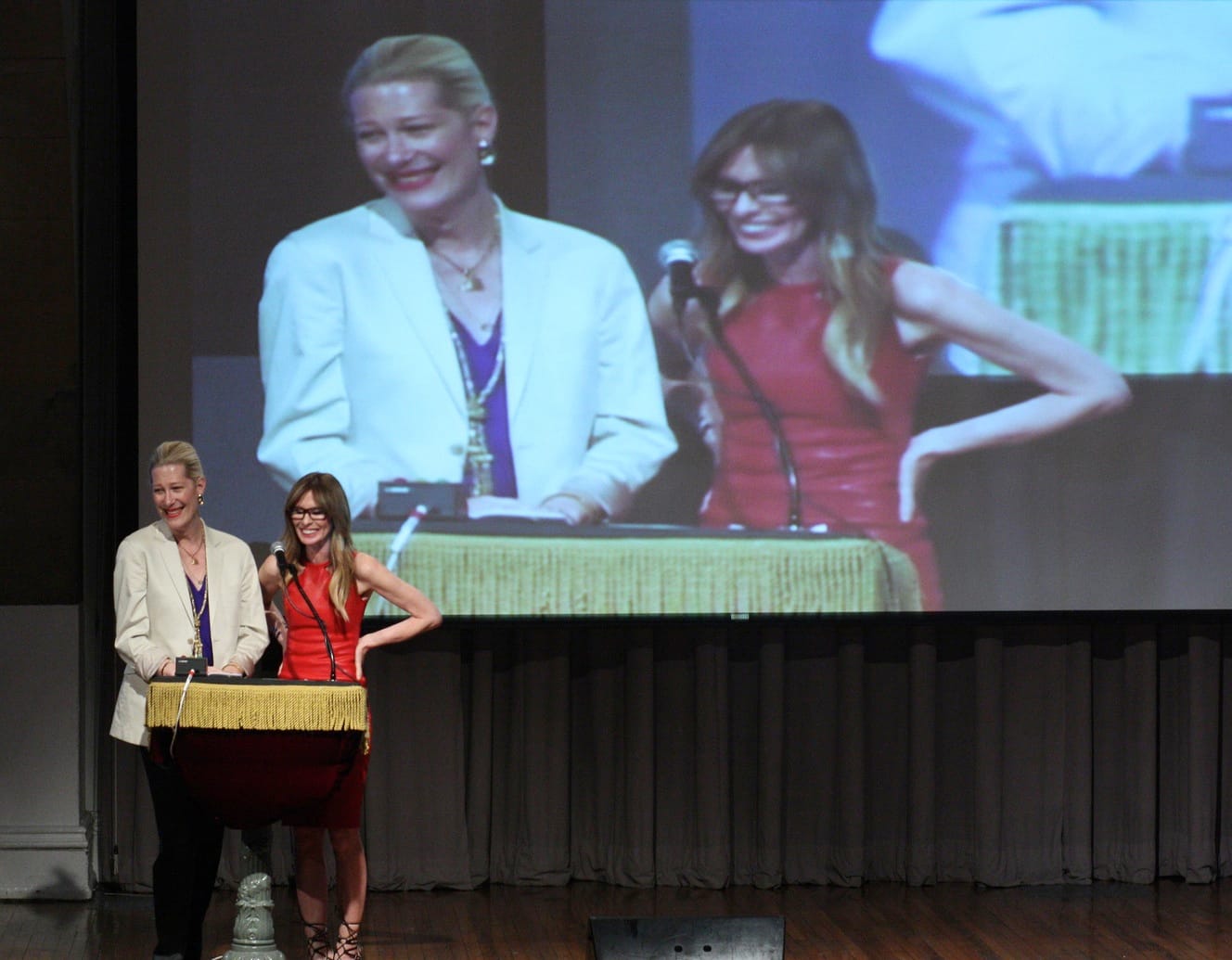
On Monday night the Lambda Literary Awards turned 25. For those unfamiliar, the Lammys are awards given out to LGBT authors in a variety of categories ranging from serious nonfiction to science fiction. They were started in 1989 by Deacon Maccubbin, founder of the now-shuttered Washington, DC, gay bookstore Lambda Rising. A couple of years prior to giving the first awards, Maccubbin began publishing the Lambda Book Report, now the Lambda Literary Review, which provided a new venue for queer writers to have their work reviewed and highlighted for booksellers and audiences. After awhile that review and the awards morphed into what is the Lambda Literary Foundation (LLF), headed today by Tony Valenzuela, which, in addition to the awards, provides resources and programming for queer writers and writers-to-be with a yen to publish, as well as readers and booksellers seeking queer content.
Numerous other prominent literary awards have been created in the past few decades to highlight the work of certain segments of the population in the English-speaking world. There’s the Man Asian Literary Prize, begun in 2007, which seeks to spotlight work by Asian writers in English, the Susan Smith Blackburn Prize for female playwrights, or the Women’s Prize for Fiction (formerly the Orange Prize) in the UK, among countless others.
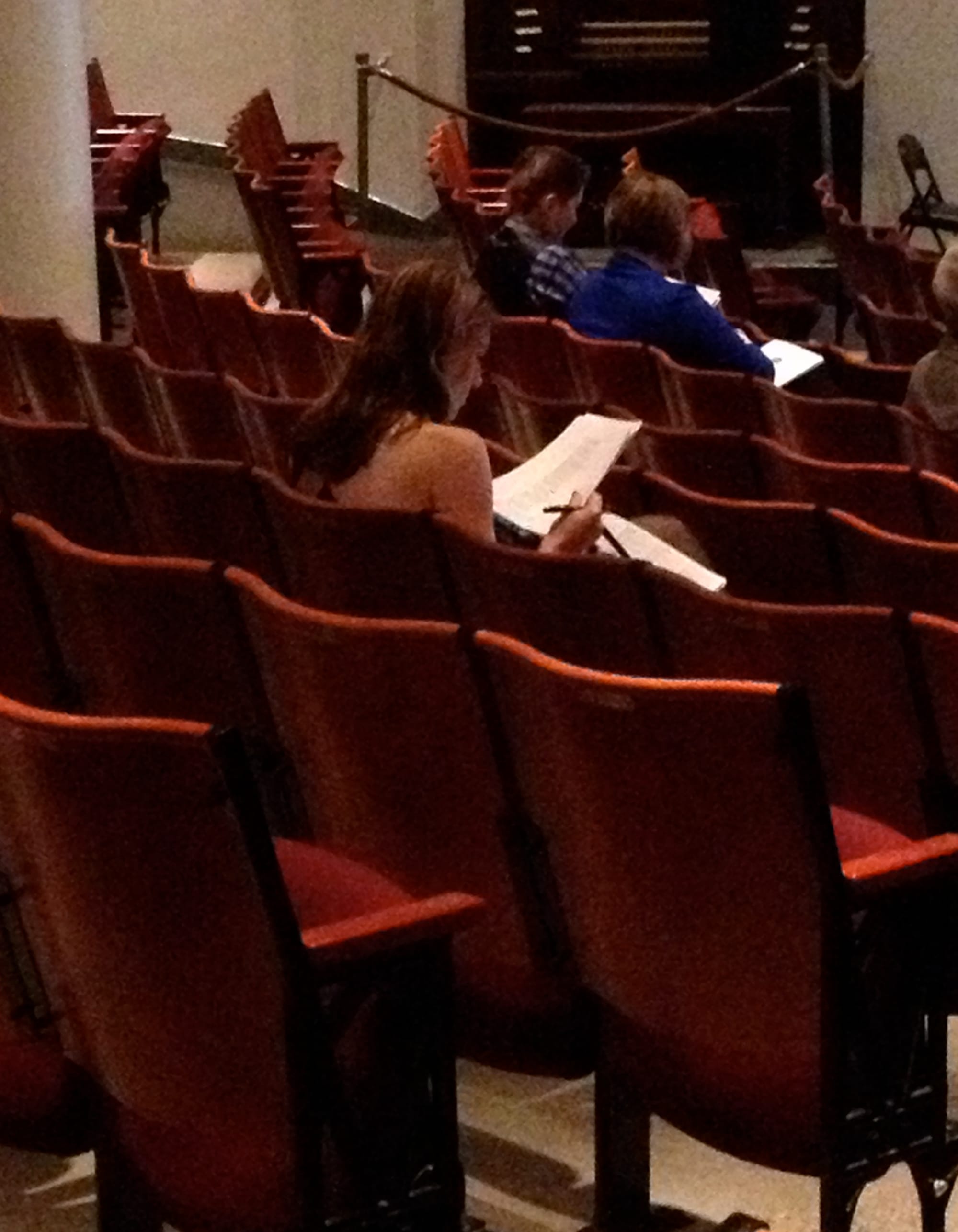
It’s hard to gauge what the exact impact of these kinds of awards is, particularly during a time when the world of literature has been undergoing such massive shifts — the rise of ebooks, increased self-publishing, the merging of large publishers, and the large drop-off in the number of physical booksellers (1, 2, 3, etc). Each of these awards seems aimed not only at offering recognition to writers and increasing public awareness, but also at influencing discussion-makers — publishers, booksellers, etc. Not to mention, in the case of the LLF anyhow, a chance to do a bit of fundraising for their other programming. With all that in mind, I wondered what queer writers make of these awards and what the ceremony would be like.
In addition to listening closely to the speeches and banter at Monday night’s ceremony I tried to get some insights from a selection of past Lammy winners as well as some of this year’s nominees. Below are some highlights from the ceremony and some of the responses from people I emailed about the awards. In addition, I’ll be posting a second piece looking at how people have gained access queer writing in the past few decades, as so much of what the Lammys offer is a literal reading list for those seeking LGBT content.
This year’s awards ceremony took place at the Great Hall at Cooper Union in New York, a space steeped in history, but attached to a school that is currently mired in conflict. As has been the case for a number of years now, the event was timed to coincide with the largest publishing trade show in the US, BookExpo America. Like awards ceremonies in every industry, the evening ran long, people went over their time limits, and ample campy humor mixed with genuine emotion and occasional political speech.
Before things got started I’m fairly certain I spotted a small cabal of writers carefully studying the list of finalists and placing bets on who would win in each category. A handsome older gentleman sitting in front of me passed a good chunk of the evening making causal pen sketches of some of the presenters in a small notebook in his lap. There were nervous writers being asked to pose in front of the step and repeat, an activity that was clearly new to some of them, though some took to it like pros. And, of course, there were gaggles of people crowding the steamy foyer, trying to shake hands, spot old friends, and make plans for future lunch dates to discuss this or that, not to mention down a couple of drinks and some edibles before the event got started.
But in terms of the actual awards, I was surprised by the number of moments that seemed to carry real meaning — both positive and critical. The Lammys have to be one of the only book awards to include a wide array of writing, from literary fiction and academic nonfiction, to work others groups would dismiss as “low” culture — things like erotica, romance, science fiction, and young adult novels. In his acceptance speech, the winner in the LGBT Science Fiction/Fantasy/Horror category for his book Green Thumb, Tom Cardamone, joked that the Lammys gave writers the chance to see “LGBT monsters, wizards, and whores depicted in a positive light.” But he went on to speak about the fact that for many queer writers, “we were given a story of shame and isolation and we rewrote it.” That comment succinctly highlighted one of the underlying purposes of the Lammys — countering dominant, dismissive, or non-existent queer narratives that denied the full humanity and complexity of LGBT people.
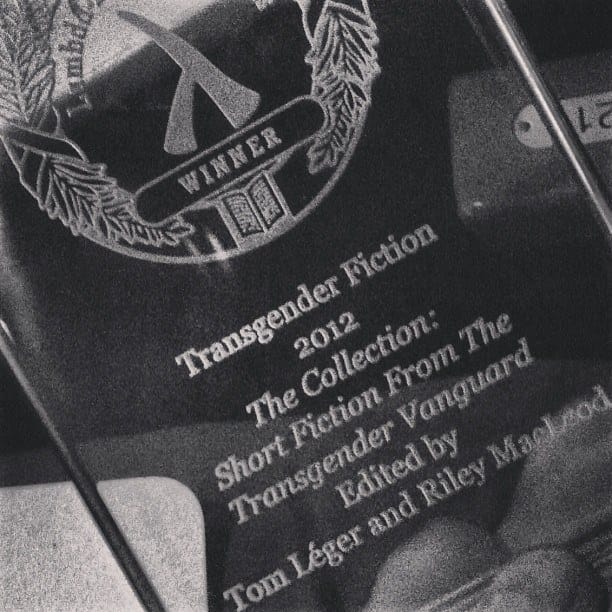
At numerous points during the evening, the idea of the space of the ceremony representing a kind of community was evoked, and this was reiterated in some of the comments I got from previous winners. Michael Nava, one of the first Lammy winners, said this in an email about his first Lambda award (he has won a total of six in his career thus far): “I felt like I was part of a movement. At the time, the award had little significance outside the LGBT community, but over time it became an increasingly important award from a commercial stand-point.”
When The Collection, an anthology published by Topside Press, won in the category of Trans Fiction, a large and impressive group of trans authors took to the stage to accept the award. As Imogen Binnie pointed out in the opening of the group’s acceptance speech, “there are more trans writers here than there have ever been.” This increase in nominees and finalists in trans categories reflects the long and ongoing struggle both for visibility within queer and mainstream cultures, but also the struggle for publishing opportunities. Tom Léger, co-founder of Topside Press, touched on this and the idea of gathering as a community in his email comments to me:
Individual Lambda awards aren’t important per se, but as an aggregate, the fact that queer people get together once a year and get excited about books, they are very important. I want to live in a community where books are important and accessible, and LLF is doing a very good job of building that community.
That said, it’s a difficult place to be as a trans person. I’ve gone to the awards ceremony each of the last three years, just as a spectator, and there are a lot of transphobic jokes coming from the stage and not very many trans people in the room. They’ve been giving out awards for trans books since 1997 and only 50% of them have actually gone to trans, genderqueer, or intersex people. Now, I like cis people as much as the next guy, but put it in context: if ‘Lesbian Romance’ had been won by men 50% of the time, we’d think there was maybe something wrong with that category … But really, LLF does many more things right than they do wrong and I think things are changing, quickly, for the better.
Perhaps the most reflective and challenging moment of the evening came when Cherríe Moraga accepted her “Pioneer Award.” Moraga, a Xicana lesbian feminist who has been writing since the 1970s, is a passionate author and activist on many fronts. Her friend, Amber Hollibaugh, writer and executive director of Queers for Economic Justice, introduced Moraga. Hollibaugh had apparently, just that morning, run into Moraga on the street and asked her if the award meant anything to her. Moraga reflected back on this question honestly and critically during her speech.
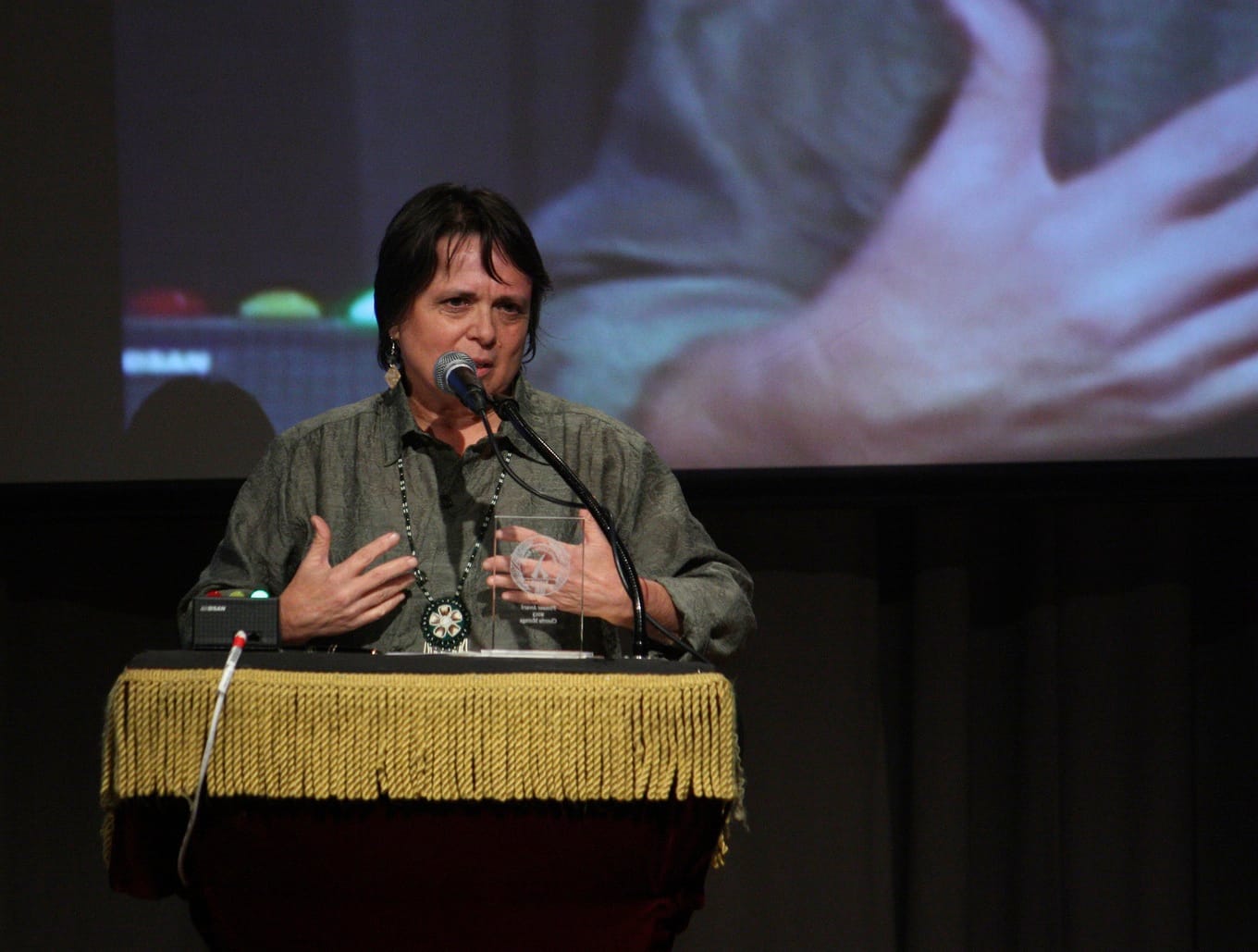
In the end she said it did mean something to her, to be able to be present, but she also spoke of feeling that many people were not represented by the awards — Latina writers and writers of color, among others. She expressed a sense that the term “pioneer,” with all of its colonialist connotations, was an inappropriate name for a queer award; that “vanguard” might be more appropriate as it connotes instead being on the front in a war. But perhaps her most memorable point came when she said this: “I just really want us to stay queer … To find those places where there is discomfort. My goal is not to be just ‘okay.’” You can imagine that the seriousness with which she considered the question of the award’s meaning was unexpected in what was ultimately a celebratory evening. But her willingness to move towards the discomforts she felt in that setting were a reminder of what great queer writing so often does: confront uncomfortable or rarely discussed realities, and refuse boundaries and simple categories or assertions.
One of the only other moments that struck me was Cynthia Carr’s very brief acceptance speech for the award for her biography of David Wojnarowicz, Fire in the Belly, won in the category of Gay Memoir/Biography. Clearly moved by the recognition for the book, she quietly wrapped up her brief comments by saying, “It’s a big deal.” It’s impossible to know what it was that moved her, but, from my seat, it felt like a reminder that even someone with Carr’s long history of writing still feels their work and its recognition deeply.
In all the comments I got back from past and present winners, there were mixes of skepticism, optimism, and ambivalence about the state of publishing today. The scales did seem to tip a bit more negatively for those most tied to or desirous of contracts with established/large publishers, while those operating primarily amidst smaller and newer independent presses seemed a bit more positive on the whole. And generally people were appreciative and supportive of the work Lamba does to support queer writers. Amongst some, however, there were thoughts that echoed elements of Moraga’s speech. Mia McKenzie, whose book, The Summer We Got Free, won in the category of LGBT Debut Fiction, put it this way: “There are so, so many different voices within the queer community and all of them deserve a chance to be heard. So, I think how valuable the Lambda Literary Awards are and continue to be depends on how much diversity there is and continues to be in the lists of finalists and winners.”
And on a definite positive note, for at least some of the authors, there will be a boost in their career from being included. As Kamal Al-Solaylee, a finalist in this year’s Gay Memoir/Biography category, told me in his email response:
“The impact of the nomination exceeded my wildest expectations. Because I’m Canadian … I had no real access to the US market. This nomination helped me get a distribution deal in the States. No matter how proud I am as a Canadian, a breakthrough in the States is still every writer’s dream. Intolerable was never intended to be a gay book but it came out (no pun intended) that way. I didn’t realize until after I finished the first draft how much of a life force my sexuality has been.”
You can view all the winners from the ceremony here.
Keep an eye out for a follow-up piece that will focus on where writers and readers have found queer writing in the past and how they find it today.
The 25th Annual Lambda Literary Awards took place on Monday, June 3, 7pm, at The Great Hall at Cooper Union (7 East 7th Street, East Village, Manhattan).

